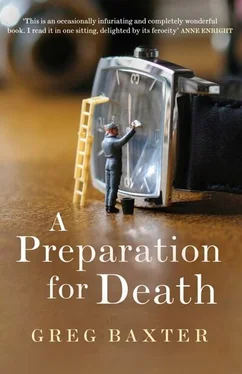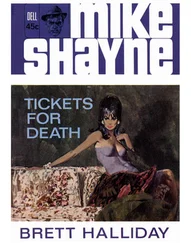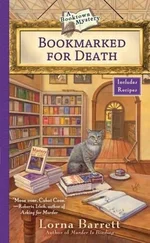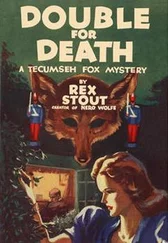I have a sense that somehow I must find a way to die in Vienna: I have never felt that I belonged anywhere else. Fielding came to Dublin from Texas a month ago, a few weeks after Elísabet arrived. He had been writing a seven-page philosophical essay for twelve months — the story of the possibility of a true self told in narrative — and needed some form of release to mark the end of it; otherwise he might go on revising forever. We have turned out to be radically different people, and I wonder if Herbert is responsible. Fielding is deeply optimistic about the future and doesn’t drink much. He is unconcerned about specifics of his past, and perceives humanity as a fragmented tissue of souls that must look forward if it is to achieve a state of perfection. Like Elísabet, he looks for connections that help to piece together our understanding of ourselves and the world. His essay is tender and sorrowful. I told him it was an unconscious autobiography and he told me my essays were clumsy philosophies. When I asked if he thought often of Vienna, he said he hadn’t much reason: Maria was his only link, and she was just a person — whereas for me she had, since the onset of her dementia, become a symbol of my lost and unrecoverable self.
Day by day, now violently, now effortlessly, I loosen my involvement in the world, my connections to people. Maria never succumbed to the temptation of regret; I live by the rule of it. Everything, to me, is out of reach; it has passed. Elísabet and Fielding search for illumination, a reconstituted paradise. I dream of a city that exists in perpetual nighttime.
After Bob’s death, Maria moved into a small apartment in Alamo Heights, not half a dozen streets from her first house in Texas. She had a few more marriage offers but was not interested. Perhaps she had loved Bob, though she never said so. Or maybe she was bored of men. She walked two miles a day with a fat dog that couldn’t keep up with her. She used to play a lot of bridge, and was extremely good, but by then her partners were either dead or too sick to get together. She found part-time work at a second-hand clothes shop, and, as she believes she still does, ran errands for Fielding’s parents. She wanted to stay busy. She didn’t need the money, since Bob had left her enough to go on comfortably for quite some time. But she was already becoming forgetful — small things — and wanted to stay active. She returned to Vienna a handful of times, twice with me: once to take me on my first trip there, at the age of fifteen, and again when I lived in Germany for a year, at twenty. We wrote letters (in German) when I was abroad — Germany, England, Ireland — and talked on the telephone when I was in America — Austin, Chicago, Baton Rouge. Signs of her mental deterioration were present when I still lived in the States: sometimes on the drive from her house to ours, she would get lost on roads she had driven a thousand times, and call us in a panic. Sometimes she telephoned my stepmother many times a day to ask the same question. These episodes made her angry, and soon there was almost no conversation she had that was not about how terrible it was to lose one’s memory — which was no different than one’s sanity — or some pill that would fix her. Nevertheless, she remained deeply unaware of her diminished independence, or refused to accept it — this was the woman who had run down a road with two sons in her arms, fleeing the Russian army. Once, on her way to visit me in Baton Rouge, when her connecting flight in Houston was cancelled by bad weather, she hitchhiked four hours in a car with a strange man rather than stay in a hotel.
Every night, for many years after Bob’s death, she had dinner with a woman named Eve, who lived in a big ranch-style house a few streets away. Eve, a rich widow and constant Scotch drinker — old-school Texas ball-breaker, the kind of woman who is sophisticated and ladylike and smarter than all the men she knows and takes no shit — was Maria’s oldest American friend. She was a lot like Bob in the end: outspoken and sharp, but an invalid. Maria ran all her errands (even though Eve could’ve paid a service), cooked her dinner, did chores around the house. Their friendship was deep, and as Maria’s memory eroded, it became symbiotic. I hardly knew Eve, but on the few occasions I visited she acted as though I might be one of her own grandchildren — though she never had children. Perhaps Maria shared us with her. When Eve died, Maria’s mind seemed to crash into the reality that the last person in the world who relied on her — who had some need for her beyond the purely emotional — was gone. She lost a great deal of acuity at this time and never fully recovered.
On the first of our two visits to Vienna, in July 1990, Maria and I arrived at the train station at around nine in the evening. We had taken the train from Frankfurt, a nine-hour journey I mostly slept through. Maria tried to wake me dozens of times to watch the scenery. I was too dozy to take note of much, and I missed, to Maria’s supreme disappointment, the sight of the Danube through Passau.
We were met at the station by our immediate relatives, the Heusslers. They were standing on the platform in a kind of anticipation I hadn’t expected, quiet, still, near disbelief, as though they suspected I might not be real. None of them had ever seen one of Maria’s grandchildren, and it was decided, immediately, that I was — and Erika gasped when she said it — an exact duplicate of Herbert. Maria had taught me a few phrases — Es freut mich sehr, dich kennenzulernen and Ich küss die Hand, gnädige Frau — but even after two years of high-school German I found them difficult to remember and was too embarrassed to use them.
It was the first time I had been outside the US. It was also the first time I had been to a city, or rather, my first realization that places like San Antonio and Houston were not cities at all but vast and loose agglomerations of parking lots.
We went straight from the station to the Heusslers’ apartment — Amalienstrasse 11, Ober St Veit — an address that was etched into my mind: everyone assumed I’d get split from the group and be utterly lost. Three generations of the family lived together in one building: Erika on the top floor with her husband Kurt; their son Dieter with his wife Heidi on the floor below them; and, in the basement, in a little room with only a bed, a small refrigerator full of smelly cheese, and a record player, Walter, my cousin. His brother, Michael, had long since moved out. I spent a lot of my nights in Vienna in that basement, chatting with Walter. Maria was concerned that he was a bad influence because she thought he was gay and a drug addict. He kissed his male friends fully on the mouth, worked part-time as a shop-window designer, and, well, acted generally gay. Of course, he was gay, and so was his brother Michael, who taught ballroom dancing.
That first night, we ate a dinner of bread, meats, and cheeses. I had expected the kind of meal Maria made for us — the over-abundant plates of goulash and Wiener schnitzel. I ate so much they had to bring out whole new platters. They watched in awe as I ate and ate. Maria told them, This is nothing. At home I make him ten pork chops. He never stops.
By day, Maria and I, sometimes with the Heusslers and sometimes on our own, took excursions to famous sights, museums, galleries, small cafés, and heurigers high up in the hills around the city. Maria needed no map. She hopped on and off streetcars and the U-Bahn with certainty and exuberance. We met a schoolmate of hers, and many friends of the family. She took me to laneways and street corners that had significance in her life, to the house where she grew up, the shelter where she took Nick and Peter to during bombing raids. Seventeen years later, I remember almost nothing of the conversations we had, but I try to clear my thoughts entirely, so that her voice might reappear. I remember only her happiness, not just for her but for me, because I had accepted wholly the fact that half of me was Viennese.
Читать дальше












